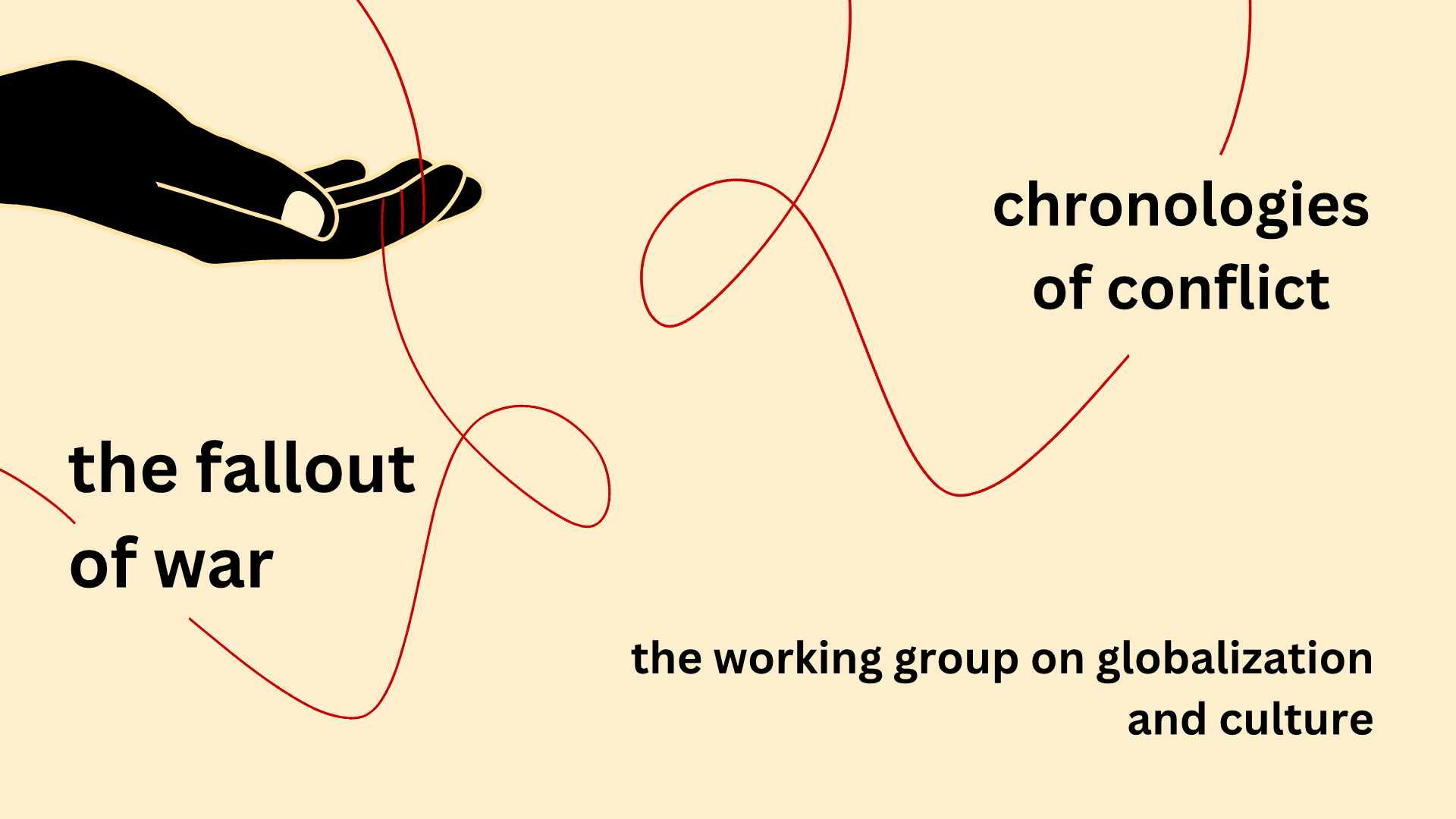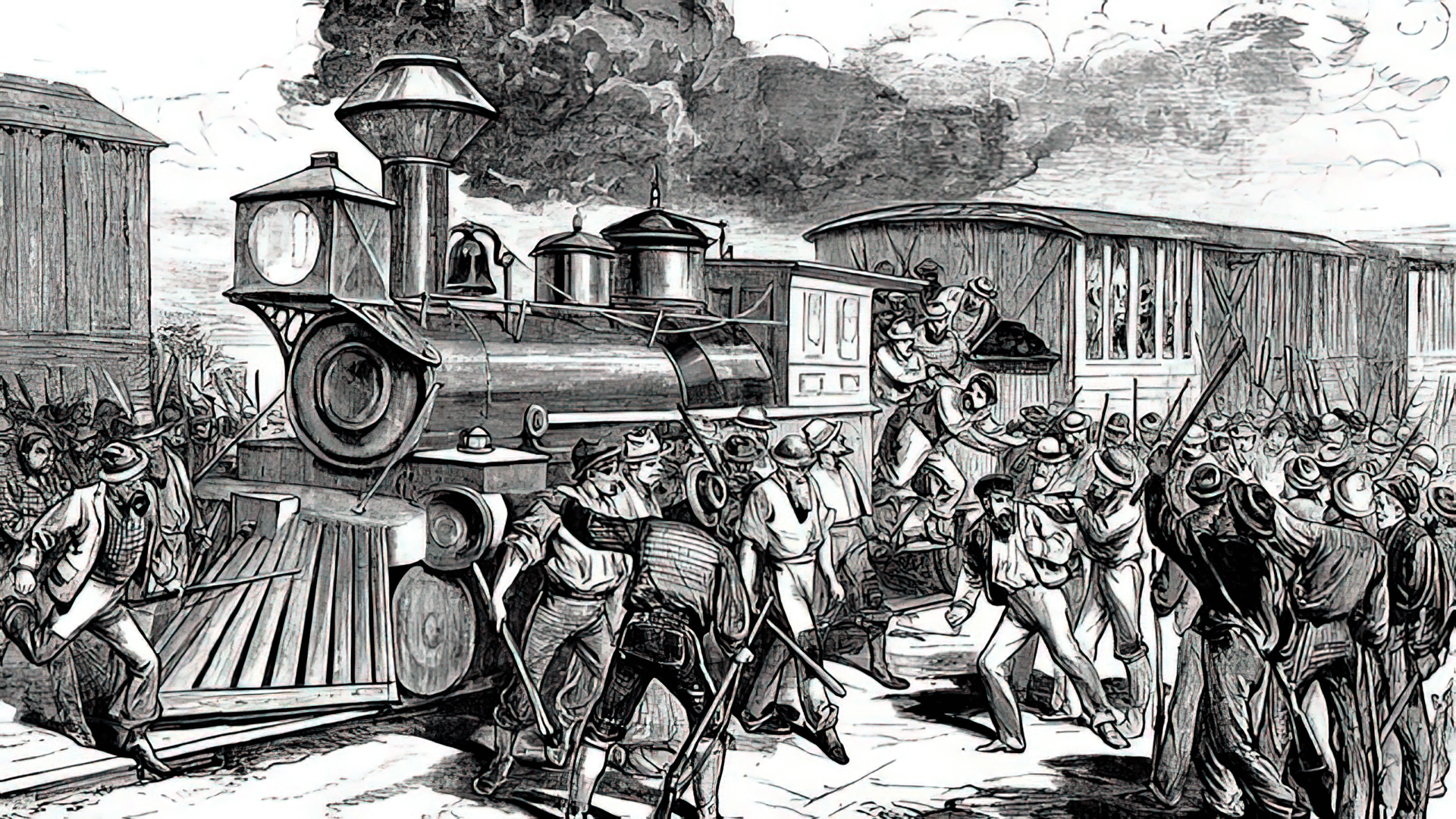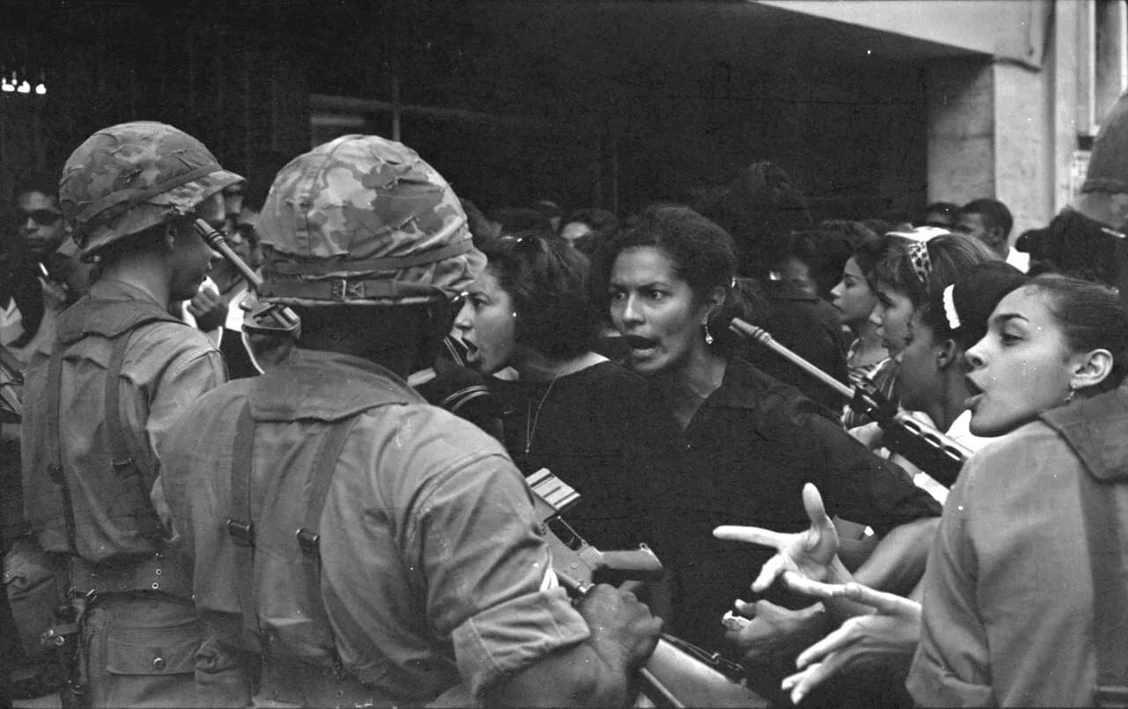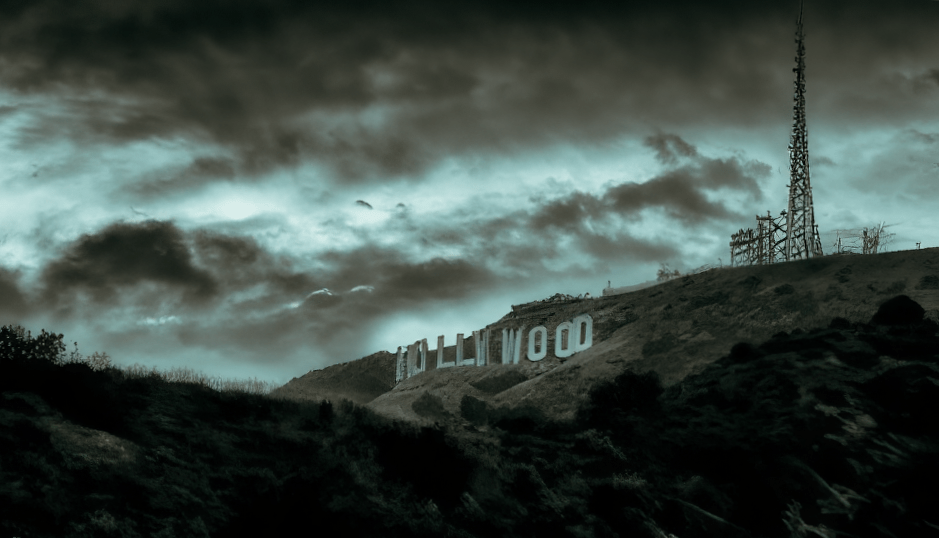Repression
The Fallout of War: Chronologies of Conflict
Recording available on YouTubeIn the first of two linked sessions, the Yale Working Group on Globalization and Culture presents their collective research on a keyword of contemporary cultural studies - war - and investigates its many valences as lived reality and as metaphor. Taking account of war as constitutive of the present, the working group explores war's myriad meanings.
Reading Du Bois’s Black Reconstruction
Online: Zoom link will be provided to registered participantsA close reading over 10 weeks of W.E.B. Du Bois's classic work, Black Reconstruction, with Sean Ahern. The book provides a basis for a much overdue revolution in US labor history. As Du Bois so eloquently and bluntly put in in 1935: “The South, after the war, presented the greatest opportunity for a real national labor movement which the nation ever saw or is likely to see again for many decades. Yet, the labor movement, with but few exceptions, never realized the situation. It never had the intelligence or knowledge, as a whole, to see in black slavery and Reconstruction, the kernel and meaning of the labor movement in the United States.”
Iran Awakening II: More Novels by Iranian Women
Online: Zoom link will be provided to registered participantsThe spring 2023 series of the MEP Literature Group continues to focus on Iranian women writing since the 1978-79 Revolution whose stories are set inside Iran.
Reading Du Bois’s Black Reconstruction
Online: Zoom link will be provided to registered participantsA close reading over 10 weeks of W.E.B. Du Bois's classic work, Black Reconstruction, with Sean Ahern. The book provides a basis for a much overdue revolution in US labor history. As Du Bois so eloquently and bluntly put in in 1935: “The South, after the war, presented the greatest opportunity for a real national labor movement which the nation ever saw or is likely to see again for many decades. Yet, the labor movement, with but few exceptions, never realized the situation. It never had the intelligence or knowledge, as a whole, to see in black slavery and Reconstruction, the kernel and meaning of the labor movement in the United States.”
Iran Awakening II: More Novels by Iranian Women
Online: Zoom link will be provided to registered participantsThe spring 2023 series of the MEP Literature Group continues to focus on Iranian women writing since the 1978-79 Revolution whose stories are set inside Iran.
Reading Du Bois’s Black Reconstruction
Online: Zoom link will be provided to registered participantsA close reading over 10 weeks of W.E.B. Du Bois's classic work, Black Reconstruction, with Sean Ahern. The book provides a basis for a much overdue revolution in US labor history. As Du Bois so eloquently and bluntly put in in 1935: “The South, after the war, presented the greatest opportunity for a real national labor movement which the nation ever saw or is likely to see again for many decades. Yet, the labor movement, with but few exceptions, never realized the situation. It never had the intelligence or knowledge, as a whole, to see in black slavery and Reconstruction, the kernel and meaning of the labor movement in the United States.”
Reading Du Bois’s Black Reconstruction
Online: Zoom link will be provided to registered participantsA close reading over 10 weeks of W.E.B. Du Bois's classic work, Black Reconstruction, with Sean Ahern. The book provides a basis for a much overdue revolution in US labor history. As Du Bois so eloquently and bluntly put in in 1935: “The South, after the war, presented the greatest opportunity for a real national labor movement which the nation ever saw or is likely to see again for many decades. Yet, the labor movement, with but few exceptions, never realized the situation. It never had the intelligence or knowledge, as a whole, to see in black slavery and Reconstruction, the kernel and meaning of the labor movement in the United States.”
Reading Du Bois’s Black Reconstruction
Online: Zoom link will be provided to registered participantsA close reading over 10 weeks of W.E.B. Du Bois's classic work, Black Reconstruction, with Sean Ahern. The book provides a basis for a much overdue revolution in US labor history. As Du Bois so eloquently and bluntly put in in 1935: “The South, after the war, presented the greatest opportunity for a real national labor movement which the nation ever saw or is likely to see again for many decades. Yet, the labor movement, with but few exceptions, never realized the situation. It never had the intelligence or knowledge, as a whole, to see in black slavery and Reconstruction, the kernel and meaning of the labor movement in the United States.”
Reading Du Bois’s Black Reconstruction
Online: Zoom link will be provided to registered participantsA close reading over 10 weeks of W.E.B. Du Bois's classic work, Black Reconstruction, with Sean Ahern. The book provides a basis for a much overdue revolution in US labor history. As Du Bois so eloquently and bluntly put in in 1935: “The South, after the war, presented the greatest opportunity for a real national labor movement which the nation ever saw or is likely to see again for many decades. Yet, the labor movement, with but few exceptions, never realized the situation. It never had the intelligence or knowledge, as a whole, to see in black slavery and Reconstruction, the kernel and meaning of the labor movement in the United States.”
Reading Du Bois’s Black Reconstruction
Online: Zoom link will be provided to registered participantsA close reading over 10 weeks of W.E.B. Du Bois's classic work, Black Reconstruction, with Sean Ahern. The book provides a basis for a much overdue revolution in US labor history. As Du Bois so eloquently and bluntly put in in 1935: “The South, after the war, presented the greatest opportunity for a real national labor movement which the nation ever saw or is likely to see again for many decades. Yet, the labor movement, with but few exceptions, never realized the situation. It never had the intelligence or knowledge, as a whole, to see in black slavery and Reconstruction, the kernel and meaning of the labor movement in the United States.”
Theodore Allen’s ‘The Kernel and Meaning’: A Strategic Critique of U.S. Labor History
Online: Zoom link will be provided to registered participantsBefore Theodore W. Allen turned to his magnum opus, The Invention of the White Race, he drafted an essay "The Kernel and Meaning: A Contribution to a Proletarian Critique of U.S. Historiography." In it, he assessed how the industrial bourgeoisie successfully overturned plantation capital's rule while assuring its own ascendancy over the proletariat. Allen reviewed six commonly held explanations as to why, despite favorable objective conditions, the U.S. left and workers movements failed to establish socialism or even a permanent working-class party. Participants in this group will read and discuss the original, 160-page typescript of Allen's unpublished essay.
Late Fascism: a Conversation With Alberto Toscano
Recording available on YouTubeIn 'Late Fascism' Alberto Toscano asks, how should we name, map and respond to the present state of affairs where the forces of authoritarianism and reaction seem to have the upper hand? Drawing especially on Black radical and anticolonial theories of fascism, Toscano makes clear the limits of associating fascism primarily with the kinds of political violence experienced in past European regimes. He argues that we should see fascism as a changing process, a threat anchored in racial and colonial capitalism, which continues to evolve in the present day.
State of Emergency in US Higher Education
Recording available on YouTubeAlan Wald presents an overview of the state of emergency in higher education in the United States that recalls earlier eras of extreme political repression, such as McCarthyism in the 1950s. Students, faculty, and staff at US colleges and universities who stand up for Palestinian human rights and stopping the genocide in Gaza are being threatened with deportation and punished by the administrations.
60 Years Since the April Revolution in Santo Domingo
Online: Zoom link will be provided to registered participantsJoin us on May 3 for a panel to commemorate the 6oth anniversary of the April Revolution in Santo Domingo and discuss its political implications, the role of working-class Afro-Dominicans, women, LGBTQ people, Haitian internationalist fighters, socialists, writers and artists as well as the worldwide international solidarity movement that ensued in the face of imperialist onslaught.
Darkest Los Angeles
Institute for the Radical Imagination NY, United StatesDennis Broe leads a group reading of his five Los Angeles novels set in the film-noir period of the late 1940s and early 1950s. The contradictions we will unearth in that postwar period, the period of crime films that visually documented this seedy reality, have never been resolved, only continually papered over, and so they resound today.







